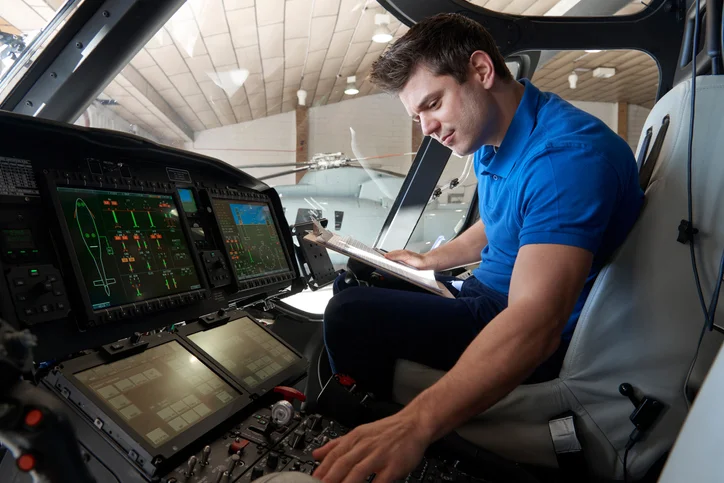Global Avionics Round-Up from Aircraft Value News (AVN)

The aviation industry is undergoing a technological revolution, with advancements in avionics transforming aircraft systems and operations.
From the development of autonomous flight capabilities to the integration of virtual reality (VR) in cockpit simulations, these innovations promise to make aviation safer and more efficient. However, they also introduce new challenges for training avionics professionals.
As the pace of technological change accelerates, training institutions and airlines are scrambling to ensure their workforce is prepared to meet the demands of modern aviation.
Keeping Up with Evolving Technology
One of the most significant challenges in avionics training is the rapid evolution of technology. Emerging systems like advanced fly-by-wire controls, predictive maintenance algorithms, and artificial intelligence (AI)-powered avionics require specialized knowledge. Training programs often struggle to update their curricula fast enough to incorporate the latest innovations, leaving graduates with skills that may quickly become outdated.
The complexity of these systems requires a deeper understanding of software integration, cybersecurity, and data analytics—disciplines that were not traditionally part of avionics training. This shift demands collaboration between educational institutions, manufacturers, and regulatory bodies to develop standardized training modules that address these new requirements.
Vocational and technical schools have recently implemented several initiatives to enhance training for avionics technicians and address the growing demand for skilled professionals in avionics repair. Notable examples include:
- Pittsburgh Institute of Aeronautics (PIA) in Hagerstown, Maryland: PIA has expanded its campus to include a new hangar and updated training areas, providing students with improved facilities to support their education in aviation maintenance.
- US Aviation Academy in Denton, Texas: This institution offers a four-week Avionics Technician Add-On Training Course designed to equip certified Airframe and Powerplant (A&P) mechanics with specialized skills in avionics systems, enhancing their career potential in the aviation industry.
- Community College of Baltimore County (CCBC) in Maryland: CCBC provides one of the largest and most comprehensive Aviation Technology programs in the Mid-Atlantic region, offering training for various aviation careers, including avionics technicians.
- University of Maryland Eastern Shore (UMES): In partnership with Piedmont Airlines (a wholly owned subsidiary of the American Airlines Group) and the Salisbury-Wicomico County Regional Airport, UMES has developed an Aviation Maintenance Training Program aimed at launching careers in aviation maintenance, addressing the demand for skilled technicians.
- University of the District of Columbia Community College (UDC-CC): UDC-CC’s Aerospace Technology Program offers training in aviation maintenance technology, preparing students for certification and careers as aviation maintenance technicians.
These initiatives reflect a concerted effort by educational institutions to meet the industry’s need for qualified avionics technicians through expanded programs and enhanced training facilities.
This article also appears in our partner publication Aircraft Value News.
John Persinos is the editor-in-chief of Aircraft Value News. You can reach John at: [email protected]